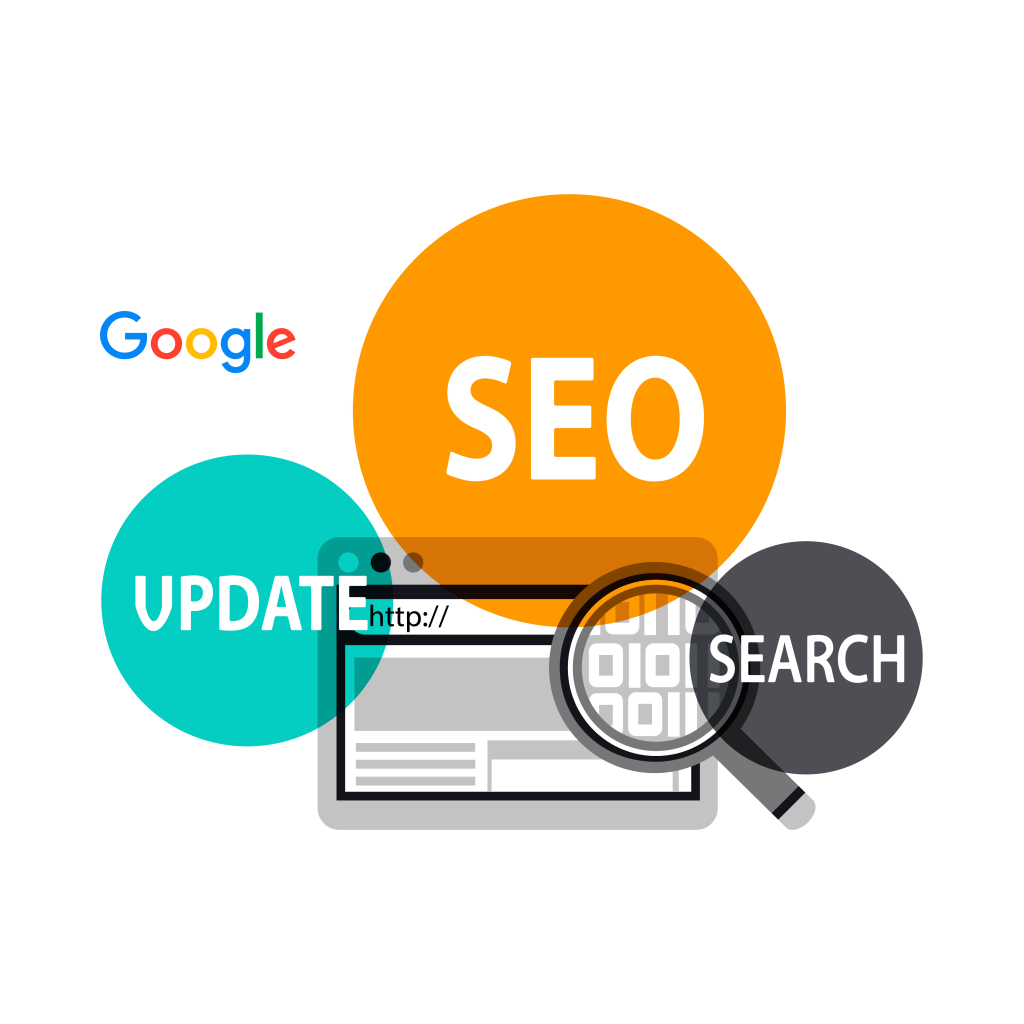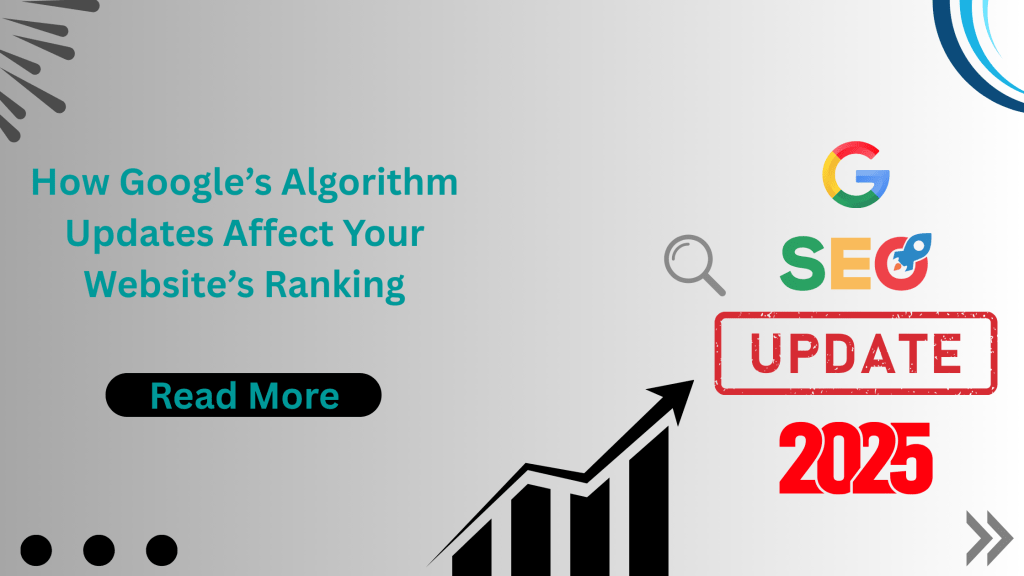Suddenly, the traffic to your website plummets overnight. You may rank on the front page one day, but what about the next? You’re hidden deep within Google, where nobody is brave enough to click. The frustration is genuine if you have ever experienced this. However, the truth is that it is neither random nor magic. We’re working on Google Algorithm Updates 2025.
Things are changing once more with Google Algorithm Updates 2025, and whether you like it or not, these changes will affect how well your website ranks.
You’re not alone in this, though, so don’t worry. Together, we may break down everything and determine what’s new, what’s happening, and how to keep ahead of the game without being sleep-deprived.

What Are Google Algorithm Updates & Why Do They Matter?
Google Algorithm Updates 2025 resemble modifications to the rules of a game that is still in progress. Google changes things just when you think you have SEO down pat.
Why? Because Google wants consumers to have the greatest possible search experience by presenting them with the best, most relevant content. And if there is no value being delivered by your website? Google, however, will not hesitate to lower your ranking.
Some of the biggest algorithm updates in the past include:
- Panda (2011): Took down low-quality content.
- Penguin (2012): Cracked down on spammy backlinks.
- Hummingbird (2013): Focused on understanding search intent.
- BERT (2019): Made Google smarter at reading content like a human.
We now have a completely new set of guidelines to follow as a result of Google Algorithm Updates 2025.
Google Algorithm Updates 2025: What’s New?
So, what’s Google up to this time? Here are the biggest game-changers:
AI Takes Over (Again)
Google is going all in on AI with the latest RankBrain 2.0 update. This means search results are now even more about context, user intent, and engagement rather than just keywords. If your content isn’t naturally answering users’ questions in a valuable way, you’re in trouble.
E-E-A-T is More Important Than Ever
Experience, Expertise, Authoritativeness, and Trustworthiness (E-E-A-T) isn’t just a suggestion anymore; it’s a ranking factor that can make or break your website. If you don’t have real credibility, Google isn’t going to trust your content.
User Experience Takes Center Stage
You know those annoying pop-ups, slow-loading pages, and weird page shifts? Google hates them as much as users do. That’s why Core Web Vitals are now even stricter, rewarding sites that load fast, feel smooth, and offer a great mobile experience.
How Google’s Algorithm Updates Affect Your Website’s Ranking
Alright, so what does all of this mean for your website?
Your Content Needs to Be REAL, Not Fluff
Google has had enough of surface-level, generic material. You will suffer if all you are doing is repeating material that has already been published. Google prefers original, thorough, and useful content that genuinely benefits the reader.
Backlinks? Only the Good Ones Matter Now
It’s true that backlinks are still important, but only if they originate from reliable, superior sites. Google will punish you for using dubious link-building strategies since it is becoming far more adept at spotting fraudulent links.
Your Site Better Be Fast & Mobile-Friendly
Bid farewell to your rankings if your website loads more slowly than a dial-up connection from the 1990s. Speed, mobile optimization, and user experience are now Google’s top priorities.
Forget the Old School Keyword Tactics
Like a Thanksgiving turkey, are you jamming keywords into your content? Yes, that is no longer effective. Natural language processing is Google’s main priority, so instead of just stuffing keywords everywhere, you should concentrate on subject relevance and search intent.

Recovering from a Google Algorithm Hit: What to Do?
Let’s assume that your ranks have fallen. What comes next?
Step 1: Don’t Freak Out
Take a big breath, please. Many websites are impacted by Google Search Algorithm Updates 2025, but there are always methods to recover.
Step 2: Identify the Problem
Look for any mistakes or penalties in Google Search Console.
To find out which pages lost visitors, check Google Analytics.
Check to see whether your material needs to be updated or improved.
Step 3: Optimize & Improve
Make poor material better by adding depth and value.
Improve your website’s speed by fixing sluggish scripts and optimizing pictures.
Increase your backlink profile (via guest posts and real networking).
Step 4: Stay Updated & Keep Adapting
Google will continue to make changes to its algorithm. Therefore, remain ahead of the game by maintaining a website that is engaging, practical, and easy to use.
Final Thoughts
Shortcuts are no longer the focus of SEO. Google is more astute than ever and favors websites that concentrate on offering genuine value rather than attempting to manipulate the system.
The secret to Google Algorithm Updates 2025 is to provide content that actually benefits people, fosters trust, and maintains user engagement.
Searching for professional search engine optimization tactics to handle these changes? Help is available from Webiators Technologies! We guarantee that, from technical SEO to content optimization, your website remains ahead of Google’s constantly evolving algorithm.
FAQ’s
1. How often does Google update its algorithm?
Ans: All the time! Google makes small changes daily, but major updates happen several times a year.
2. What’s the biggest ranking factor in 2025?
Ans: Content quality, E-E-A-T, and user experience are the top priorities for Google Algorithm Updates 2025.
3. How do I know if my site was affected by an update?
Ans: Check Google Analytics and Google Search Console for traffic drops and ranking changes.
4. Can I recover from a ranking drop?
Ans: Absolutely! Focus on content quality, technical SEO, backlinks, and user experience.
5. Is AI changing SEO?Ans: Yes! AI is now shaping search results, so content relevance, user engagement, and intent matching matter more than ever.


